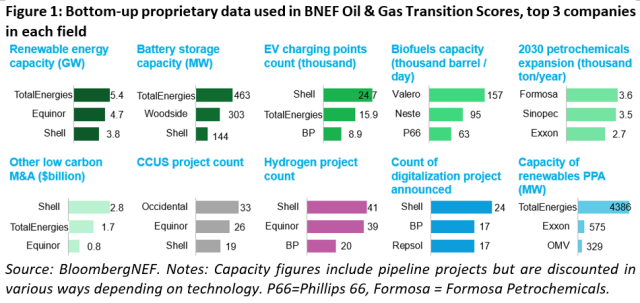Shell, TotalEnergies and Repsol beat other oil and gas majors in managing climate risk and shaping business models for a low-carbon world, according to BloombergNEF (BNEF).
The report finds that European companies continue to outperform while Asian firms gain on transition investment. BNEF’s Oil & Gas Transition Scores compare 41 majors on their preparedness for a net-zero world.
Key findings from the report include
European companies, in a league of their own in developing transition technologies, lead the scores, taking eight of the top 10 spots.
Two Asian companies, ENEOS and PTT, made the top 10 as new data reveals they have invested meaningfully in low carbon transition activities. They pushed North American companies Suncor and Chevron out of the top 10 compared to the inaugural scores released in 2021.
Leaders are building significant low-carbon business lines, for instance by developing projects across renewable energy, battery storage, electric vehicle charging, hydrogen and carbon capture.
Oil and gas companies with a strong upstream exploration and production focus or uncompetitive downstream refining operations face higher transition risk exposure.
A low-carbon world is likely to consume far less fossil fuel and risks making the core business of producers redundant, while a downstream company can switch with greater ease to refining biofuels or focus on petrochemicals, for example.
Integrated companies are more diversified across the value chain and flexible in the face of business risks. More importantly, they have stronger finances and skills to transition.

